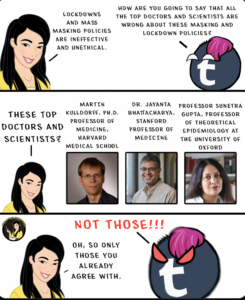Two of the [Chairman Gary] Gensler SEC’s most important critics are within the SEC. The first is commissioner Hester Peirce, the only Republican currently on the commission. Appointed by Donald Trump and serving since 2018, Peirce has used her post to argue against Gensler’s approach and to dissent from her Democratic colleagues’ decisions. Though the chairman sets the agenda and directs the commission’s resources, individual commissioners retain significant latitude to speak their minds.
In a lengthy statement from March 2022 titled “We Are Not the Securities and Environment Commission — at Least Not Yet,” Peirce argued that the climate-disclosure proposal “turns the disclosure regime on its head.” The purpose of disclosure requirements, Peirce said, is to provide investors with information about how a company is run. It would be a perversion of the SEC’s purpose to require disclosures that regulators want rather than disclosures that investors need.
The proposal would give stakeholder capitalism the force of federal regulation over part of the economy. “It forces investors to view companies through the eyes of a vocal set of stakeholders, for whom a company’s climate reputation is of equal or greater importance than a company’s financial performance,” Peirce said. Stakeholder capitalism is a theory of corporate decision-making by which businesses seek to satisfy various groups of people inside and outside the company, rather than focusing on financial performance. Corporations should be free to adopt or reject it without government’s putting its thumb on the scale in favor of particular groups (in this case, environmentalists).
All of these reforms share a common principle, which is that state money for education follows the child and not the school system. The hope is that this empowers parents, rather than unions and education bureaucracies that have dominated school governance and prevented the learning improvement and higher standards that U.S. students desperately need.
Art Carden identifies four ways to get what you want. A slice:
Consider tariffs again. If we know anything in economics, we know taxing trade routes is “bad.” It impoverishes most people to serve special interests. The “bargaining” between interest groups that can deliver votes, and politicians who can deliver policy, consumes income and wealth, on net. Politicians are “trading” what’s in consumers’ wallets without giving them an offsetting benefit.\
Why are gasoline prices so much higher in California than in the rest of the country?
Billy Binion talks with Jennifer Sey.
Last month, Russ Roberts had Arnold Kling as a guest on EconTalk.
The Pholosopher tweeted this image: (HT Jay Bhattacharya)




